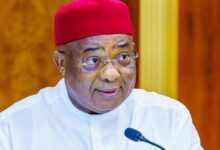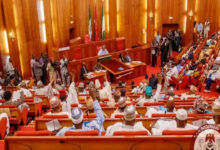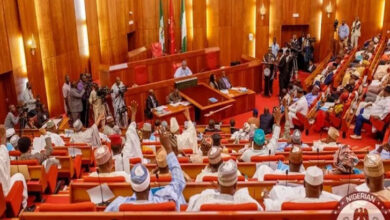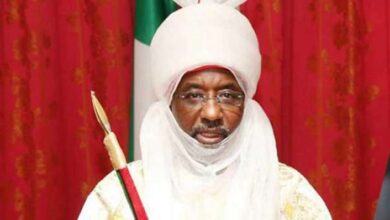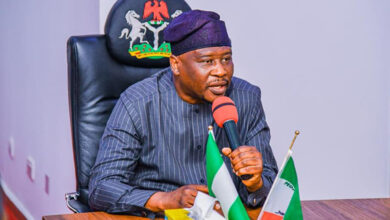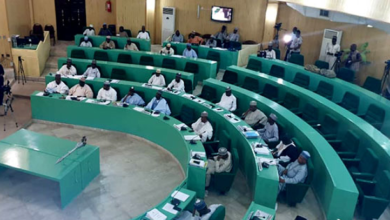Cautious optimism as Reps pledge legislative inclusion, open parliament

There is cautious optimism over the resolve by the 10th House of Representatives to ensure legislative inclusion and open parliament. The initiative is part of an eight-point legislative agenda recently unveiled by the Speaker, Tajudeen Abbas, aimed at rebuilding citizens’ confidence and stimulating good governance.
The eight-point legislative agenda comprises strengthening good governance, improving national security, law reform, economic growth and development, social sector reform and development, inclusion and open parliament, influencing foreign policy and climate change and environmental sustainability.
The resolution by the lower legislative chamber to include the issue of open parliament and citizens’ engagement was based on the fact that it is crucial for strengthening democratic institutions and ensuring transparency and accountability in governance.
There is a common consensus by members of the 10th House, dubbed the “People’s House”, that an open parliament fosters a two-way dialogue between elected representatives and the citizens they serve.
The goal, according to the Speaker, is to ensure that legislative processes are transparent as records of proceedings and decisions arrived at by the lawmakers are accessible to the citizenry. He also noted that it seeks to strengthen public participation in legislation and other legislative matters, including public hearings, town hall meetings, House of Representatives Open Week and online consultations, among others.
The launch of the legislative agenda is coming on the heels of the purchase of a total of 358 units of the 2023 model of Toyota Land Cruiser, which cost ranges from N135 million to N145 million, a development which has attracted opprobrium.
Since 2012, save for 2017 when the lawmakers allocated ₦125 billion to themselves, the breakdown of their annual budget has not been open to the public. It has been estimated that within the period under review, the National Assembly has allocated about ₦1.2 trillion to itself amidst protestations by well meaning Nigerians.
However, under the current legislative agenda, the House pledged to take legislative actions to promote women’s political representation and participation through the re-introduction and support for the Bill on temporary special seats for women in the Constitution amendment efforts. The House intends to legislate an increment on women’s representation in elective positions by creating special women-only seats in the Senate and House of Representatives and encouraging State Houses of Assembly to do the same.
It also seeks to introduce electoral reforms to implement mandatory requirements for political parties to have a certain percentage of female candidates and in party leadership structure. Furthermore, it wants to promote funding or subsidies specifically for female candidates to reduce the financial barriers to entry and strengthen the Electoral Act 2022 to penalise violence, intimidation and harassment against women in politics. The House also intends to prioritise financing for mainstreaming gender equality, including the National Gender Policy, the Violence Against Persons Prohibition (VAPP) and the Child Rights Act, with cost plans at the state level and gender-responsive planning and budgeting at the federal and state levels.
It also pledged to pass the Gender Equal Opportunities Bill (GEOB) to ensure women are active and equal participants in Nigeria’s political and decision-making processes as well as strengthen oversight of government institutions to ensure compliance with the National Gender Policy and court judgment on the full implementation of the 35 per cent affirmative action on appointive and elective positions in both public and private sectors.
Besides, it seeks to strengthen the women’s caucus in the House to better advocate for women-specific issues and mentor upcoming female politicians, support maternity leave for up to six months and amend the Police Act 2022 to ensure uniformity in the enlistment requirements for men and women; amend the rule that excludes married women from enlisting in the police and delete the regulation that provides that unmarried women may only marry after they have served in the police for three years subject to approval from a Police Commissioner.
The agenda also seeks to revisit the Labour Act to ensure increased opportunities for women and delete sections that empower a minister of labour to make regulations prohibiting or restricting women’s employment.
Critical stakeholders like the Human Rights Writers Association (HURIWA) and the Civil Society and Legislative Agenda (CISLAC) have described the legislative inclusion and open parliament agenda as a welcome development.


HURIWA National Coordinator, Emmanuel Onwubiko
HURIWA’s National Coordinator, Emmanuel Onwubiko, who expressed doubts about the lawmakers’ commitment to the agenda, said he was optimistic that they would emulate their peers in advanced democracies like the United States of America (USA) and Britain.
Onwubiko said: “HURIWA will conclude by asserting that these are easier said than done, especially when we already know that so many of the politicians who populate the parliament, are not admirers of the open government initiative and as such may not truly be disposed and willing to open up their parliamentary investigations and activities to public scrutiny. For now, it is safe to see this pronouncement as only a mere statement of intent,” he said.
He noted that ideally, the parliament ought to operate in line with the principles and laws of open government initiative as most advanced democracies such as Great Britain, USA, Canada, are used to doing.
According to him, this is because, under the Nigerian Constitution, members of the parliament are elected from and among the people of Nigeria and they are the bona-fide representatives of the people of their constituencies that make up the federation of Nigeria.
He argued that since they are elected to exercise authority of law making and undertake oversight control over agencies of the Federal Government, the parliament ought to be a space whereby there wouldn’t be complicated bureaucratic bottlenecks to impede the flow of information, feedbacks from the people and from the parliament and to both the people and parliament.
Onwubiko added: “The laws that are to be made by the parliament are for the interest of the people of Nigeria because the larger essence of democracy is to uphold the public good, serve the national interests that aggregate the overall public good.
“The parliament ought to be liberalised in a way that public hearings are constantly organised and access made possible for members of the public with suggestions to be tabled in line with the expected outcomes of the hearing sessions that are thrown open to the public especially before critical decisions of the parliament are made.
“Besides, the parliament must encourage a seamless flow of information about their activities to the people because the greatest happiness and good of the greatest number of people is the goal, basic essence of legislative duties.
“Open parliament must begin from the constituencies of the members because the representative of the people must often touch base with the people of his/her constituency to be able to generate a huge body of demands and workable panacea that may be originated at the meetings of the representative of the people with the people in the constituency office.
“In Britain, members of the Westminster parliament are by law expected to hold interfaces and interactions with their constituents on a weekly basis and typically, you can run into the member of parliament representing your constituency in the local supermarket that you have gone to buy groceries.
“This is how open and transparent the British parliament is and the expenses are subject to the Freedom of Information Act. Such demands are very important in Nigeria if this open parliament policy of the 10th session of the National Assembly is to make any pragmatic meaning to the citizens.
“But this is not the case because the Nigerian parliament have gone ahead to buy N160 million jeep for the over 400 members costing tax payers over N100 billion and this budget line was secretly executed and indeed it is not even clear if it is included either in last year’s budget or the just passed supplementary budget that was recently signed into law by President Bola Ahmed Tinubu.
“So by and large, the statement by the Speaker of the House of Representatives on the so-called open parliament policy may as well remain just mere media propaganda and a political ruse. Nigerians need to be convinced that these legislators are not just playing around the gallery and using semantic gymnastics to try to deceive gullible citizens.”
Speaking in the same vein, the Executive Director of CISLAC, Auwal Musa Rafsanjani, stated that it was a good development to have a legislative agenda but stressed that it would also be good to have it implemented.
His words: “The legislative agenda is hardly complied with or observed by the National Assembly members. In most cases, there is no review of the agenda to know where we are, what are the gaps and what are the problems.
“As much as we appreciate their efforts, we are also worried that sometimes the agenda are not followed to the letter. The issue of open legislature is one of the issues the civil society has been canvassing. This is because if legislators want government agencies to be open to them, it is only proper to see that the National Assembly itself is open.
“The budget of the National Assembly needs to be established and their reports made public. Their deliberations, public hearings and the oversight duties should also be open to the public so that the allegation that the National Assembly is compromised would not arise. They must endeavour to include the media and civil society organisations to see the work they are doing.
“As long as all these are done secretly, it would be extremely difficult to achieve open legislature because Nigeria is a member of the open government partnership and so in that spirit, Nigeria should also open up its legislature for the public to also know what they are doing.”
Notwithstanding the doubts trailing the unveiling of the legislative agenda, Abbas, on the occasion of its launch, insisted that the parliament was ready to welcome citizens’ participation in the efforts to address the challenges facing the country.
He said: “Our desire is to have a legislative agenda that meets the yearnings and aspirations of citizens and with which they would use as a benchmark to evaluate and assess our performance after four years. Therefore, today’s meeting should not be seen as the usual talk-shop. Consider it a critical national assignment.
“There is no better way to show that the 10th House of Representatives is ready to respond, and urgently too, to the yearnings of those who brought us to the people’s House to do the people’s business.”
Abbas noted that citizens’ engagement is the fulcrum of a representative democracy, saying: “It is only through such engagements that legislators will become, truly, the representatives of the people. To do otherwise, will amount to a democracy without the people.”


Senate President Godswill Akpabio PHOTO: Twitter
The Majority Leader of the House and Chairman of the House Ad Hoc Committee on Legislative Agenda, Prof. Julius Ihonvbere, who spoke at the event graced by the Senate President, Godswill Akpabio, and the Secretary to the Government of the Federation (SGF), Senator George Akume, noted that the event marked “a pivotal moment in our nation’s history as we receive input to build a comprehensive blueprint to drive progress, prosperity and inclusivity across our great nation.”
He said the vision of the House for Nigeria was one of a prosperous and vibrant nation where every citizen can achieve their full potential.
“We envision a Nigeria where the economy is robust and diversified, infrastructure is world-class, education is transformative, healthcare is accessible to all, and governance is transparent and accountable. This vision transcends partisan lines, and it is the collective aspiration of every Nigerian.
“As representatives of the people, we are entrusted with the enormous responsibility of shaping the trajectory of our country’s development. The Legislative Agenda is a culmination of tireless efforts, broad consultations and dedicated research aimed at addressing the critical challenges facing our nation while seizing the abundant opportunities that lie ahead,” he said.
